A relationship breakdown can be an emotionally, physically and financially taxing experience.
While separation rates are on the decline, currently, one in three marriages still end in divorce. The statistics are confronting, but for many women going through a separation they can also be a source of comfort; you are not alone and other women are experiencing similar hardships too.
While a divorce lawyer or counsellor can help you navigate the aftermath of a split, the advice of other women who have been through a separation – and lived to tell the tale – can be the most useful (and comforting) of all.
We reached out to five women who were open to sharing their story of a divorce or separation to ask them about the biggest challenges and learnings, and the useful advice that got them through.
Are you going through a separation or divorce? Visit the Suddenly Single separation guide, filled with practical support, wellbeing advice and useful contacts to help support you through this challenging time.
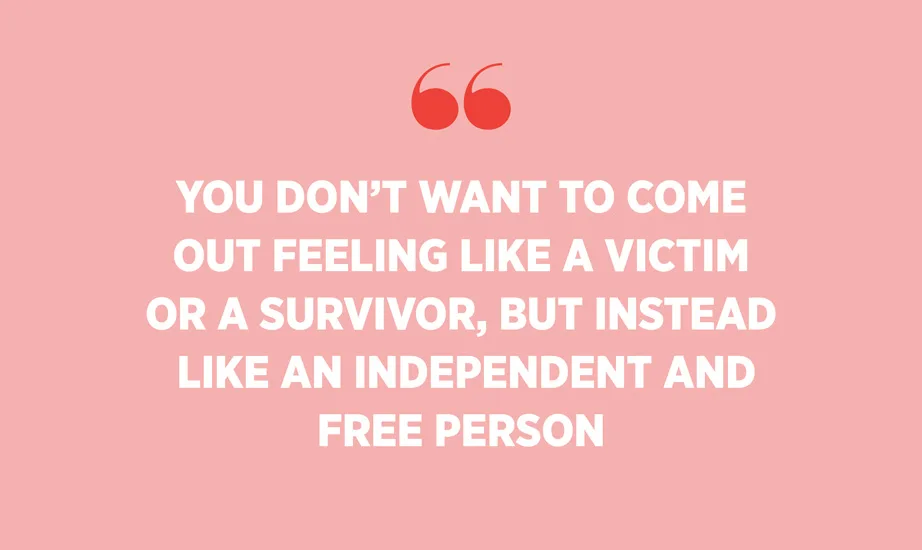
Rachel — married for five years with two children; separated in 2012.
While she admits that her separation and divorce were an emotionally and physically enduring process, Rachel says she came out the other side feeling liberated and empowered. After her ex-husband stated that he wanted to separate in 2012, Rachel seized the opportunity and filed for divorce as quickly as she could.
Coming out of a relationship filled with domestic violence, un-diagnosed and untreated mental illness, and addiction on her partner’s behalf, her quick action to file for divorce was made for the sake of her and her children’s wellbeing.
Rachel was fortunate to have finances behind her, as well as the support of her family, but was quick to realise many other women in similar situations are not in the position to call on others. As a result, Rachel started DivorceAnswered, an online forum to help women navigate the early stages of a separation.
Her best piece of advice: “Immediately create financial independence from your ex-spouse. Set up your own bank account, get a job and create a budget – if you don’t know where to start, Westpac has a great, easy-to-use budget planner.”
In addition to providing a budget planner, Westpac’s Davidson Institute also has a wide selection of money management webinars and tools available online, designed to help build your financial confidence after a break-up, they can help put you on the path toward financial independence.
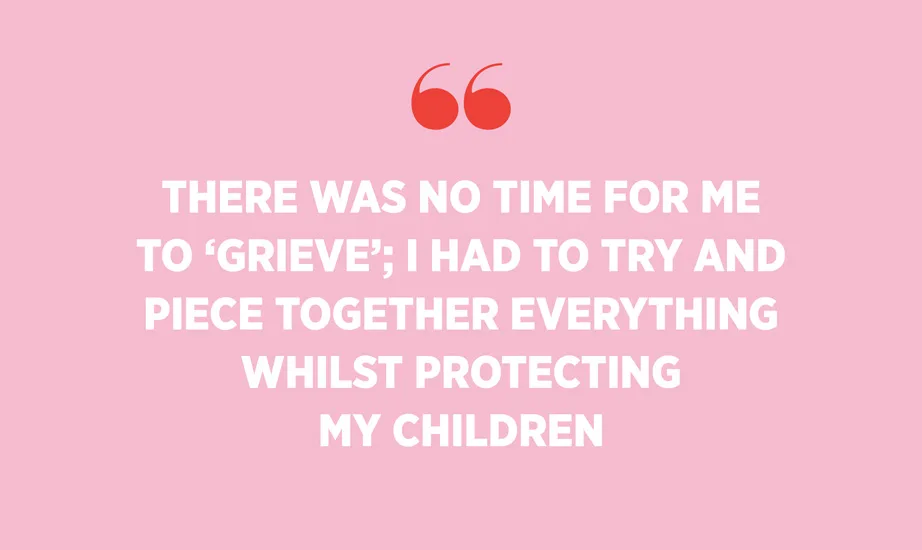
Karen — married for 10 years with two children; separated in 2015.
While Karen’s split from her husband-of-10-years didn’t come as a surprise, the initial stages of the separation were not amicable.
Karen was quick to assume the role of sole breadwinner – taking primary care of her four-year-old son and six-month-old daughter – while also trying to manage the fall-out from the split.
The on-going challenge for Karen revolves around finances and childcare agreements. Despite having split assets with her ex — and having legally binding agreements around child support — her divorce is yet to be finalised.
Now having settled differences with her ex, she fears reviewing her situation due to the associated costs involved and the emotional upheaval.
Her best piece of advice: “Find out your rights, engage with a lawyer, push hard on what you believe is right in your financial split, and make sure your kids are supported. Support them with counselling and try to be as amicable as possible with your partner for the sake of your kids.”
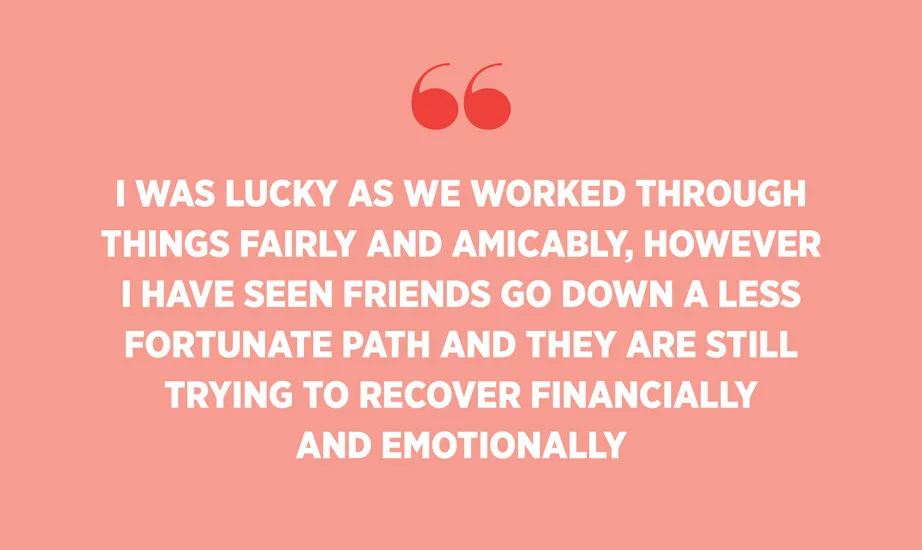
Jaclyn — married for 13 years; divorced in 2012.
For Jaclyn, the initial split from her ex-husband came as a real shock. After seven months apart, Jaclyn’s ex re-approached her, hoping to rebuild the relationship. Deciding to ‘date’ for a few months, Jaclyn then made the call that the relationship was not working for her and then the couple made the decision to file for divorce.
Looking back, Jaclyn feels fortunate that the separation was fairly amicable, however the split wasn’t without its fair share of challenges.
Holding many financial ties with her ex-partner, it was difficult for Jaclyn to manage her cash flow while trying to secure her newfound financial independence. And if she could have her time again, she would re-assess her finances and not be so quick to sell all of her assets.
Her best piece of advice: “Don’t make emotional decisions, especially around finances, to simply ‘move forward’. Take the time to assess your solo financial position and what is right for you now and long-term.”
If you’re currently going through a separation, be sure to reach out to your bank for financial support. Westpac has made available a range of checklists and resources including a Separation Support Guide and Checklist, to help you navigate through the key stages of a separation.
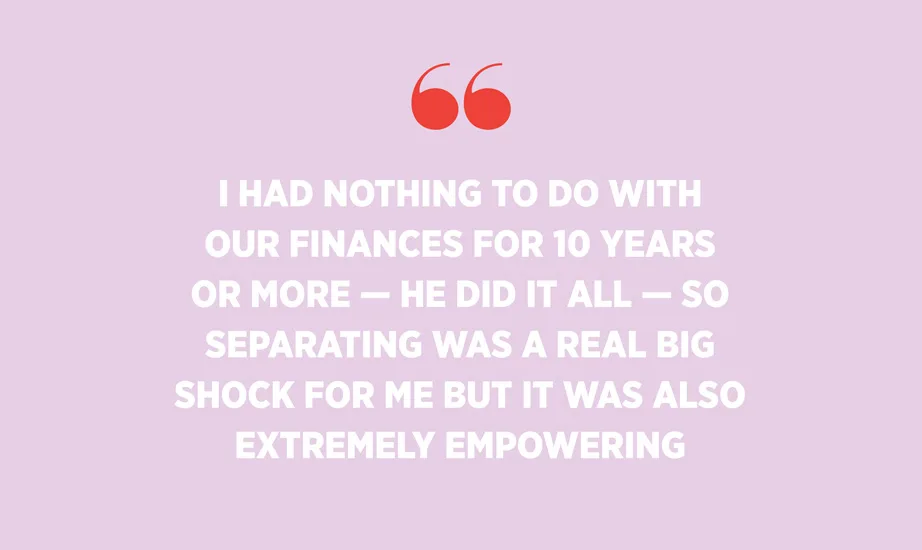
Tiffany — together for 14 years with three children (two step-children); separated in 2013.
After trying to salvage their relationship for three years, Tiffany and her ex-husband chose to consciously un-couple in 2013. The break-up was a shock for both spouses, who share a daughter together, but it affected Tiffany’s two step-kids the most.
For the sake of their children, Tiffany and her ex-husband kept things amicable, striving to maintain a respectful and caring relationship. Maintaining that relationship consequently benefited the couple during their financial settlement, where they chose to split assets in a very fair and equal way.
Her best piece of advice: “Do whatever you can – within reason and safety – to maintain an amicable relationship [with your ex] for your children. You’re going to be connected to this person for the next twenty years. I would say don’t focus on the nitty gritty; focus on the big picture and the love and the respect that you once shared.”
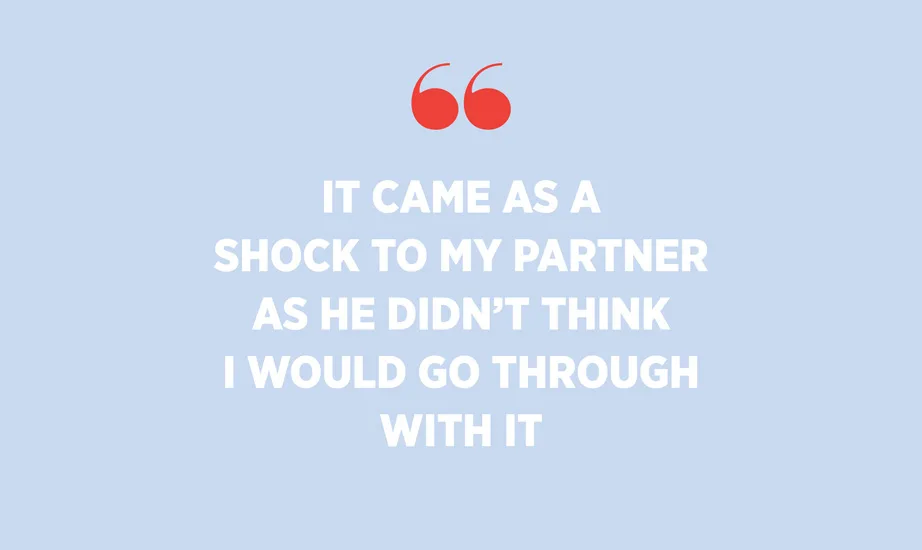
Jane — married for 15 years with two children; divorced in 2015.
Separating from her ex-partner in 2010, Jane references the experience as without a doubt one of the hardest things she has been through in her life.
For Jane, of the idea of failing her children and family, the fear of the unknown and the large amount of additional responsibility she would face — physically, emotionally, mentally and financially — made it an extremely challenging time.
One of the most difficult aspects of her split was the anger and negative behaviours that her husband projected onto both Jane and her children throughout the process. Working incredibly hard to protect her children from the backlash, Jane now wishes she could have done more to protect them financially.
Her best piece of advice: “Get a team behind you – you will need constant financial and health and wellbeing support.”
Breaking up is rarely easy, so it’s important to find people you can lean on and trust when you need it most. While every separation is different, Westpac advises creating a strong support network – this may be friends and family, but it could also be professional advisers. From lawyers and psychologists to financial planners and accountants, these experts can help support both your general and financial wellbeing.
Brought to you by Westpac. For more information, videos, and guides about financially separating from a partner, visit Westpac’s Separation Hub.
This information is intended to be general in nature and should not be relied upon for personal financial use.
Visit the Suddenly Single separation guide here.
If you’re looking to sharpen your finance knowledge, be sure to check out Bauer’s Financially Fit Females hub.










